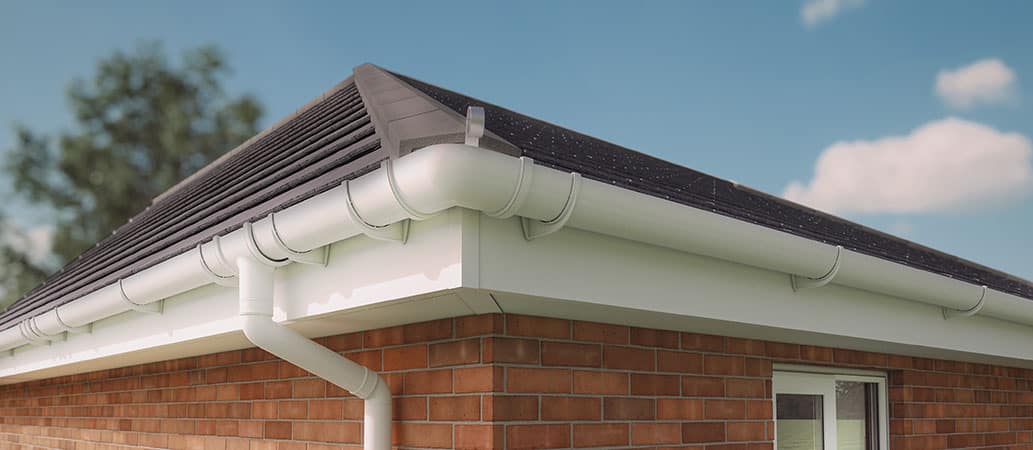fascia-repair2858
fascia-repair2858
Nine Things That Your Parent Teach You About Upvc Fascias

Understanding uPVC Fascias: A Comprehensive Guide
uPVC fascias are an important element of modern roof and exterior design, serving both practical and visual functions. This short article digs into what uPVC fascias are, their advantages, installation processes, maintenance, and a comparison with other products.
What are uPVC Fascias?
uPVC, or unplasticized polyvinyl chloride, is a kind of plastic commonly used in structure applications due to its toughness, flexibility, and resistance to environmental aspects. Fascias are the board that runs horizontally along the roofing’s edge, typically situated below the roof’s edge and above the eaves. They serve as a support for the lower edge of the roofing system and assist in the installing of the gutter system.
Secret Functions of uPVC Fascias:
- Structural Support: They provide stability to the roofing’s structure.
- Aesthetic Appeal: Available in different designs and colors, uPVC fascias boost the structure’s exterior appearance.
- Water Management: By working as a part of the gutter system, they assist funnel rainwater far from the property.
- Bug Barrier: They help prevent bugs and birds from nesting under the roofline.
Advantages of uPVC Fascias
uPVC fascias have gained popularity over traditional wooden fascias due to numerous benefits:
1. Durability
uPVC is resistant to decay, rot, and warping, making it a long-lasting service for fascias that can stand up to extreme climate condition.
2. Low Maintenance
Unlike wood, which requires routine painting and sealing, uPVC fascias are practically maintenance-free. A basic wash with soap and water is typically all that is needed to keep them looking brand-new.
3. Cost-Effectiveness
Although the initial cost might differ, the general life expectancy and minimal maintenance requirements of uPVC make them a more affordable alternative in the long run.
4. Visual Versatility
uPVC is offered in a large range of colors and surfaces, consisting of wood textures. This adaptability allows property owners to choose fascias that match their existing architecture.
5. Ecological Resistance
uPVC is resistant to ultraviolet light, guaranteeing that colors remain stable gradually, while likewise being invulnerable to extreme temperature levels, moisture, and bugs.
Contrast of uPVC Fascias with Other Materials
To gain a better understanding of the advantages of uPVC fascias, let’s compare them with two other common materials: wood and aluminum.
| Function | uPVC | Wood | Aluminum |
|---|---|---|---|
| Resilience | High | Moderate | High |
| Maintenance | Low | High (needs painting and sealing) | Moderate (occasional cleansing) |
| Cost | Moderate | Moderate to High | Moderate to High |
| Aesthetic | Versatile | Timeless, but restricted by maintenance | Streamlined, modern-day |
| Ecological Resistance | Exceptional | Poor (can rot and warp) | Excellent |
| Installation | Easy | Moderate | Easy |
Installation of uPVC Fascias
Products Required:
- uPVC fascia boards
- Gutter system
- Fascia brackets
- Screws or nails
- Protective gloves
- Measurement tools
- Saw (for cutting)
- Level
Step-by-Step Installation Process:
- Measure the Area: Accurately measure the length of the roofing system edge where the fascia will be set up.
- Cut the Boards: Using a saw, cut the uPVC boards to the required length.
- Connect Brackets: Secure the fascia brackets to the rafters at routine periods, guaranteeing they are level.
- Fit the Fascia Boards: Slide the cut uPVC boards into the brackets and protect them utilizing screws or nails.
- Install the Gutter: Attach the guttering to the set up fascia for water management.
- Finish Up: Ensure everything is secure and clean the work location.
Maintenance of uPVC Fascias
While uPVC fascias need minimal maintenance, routine checks are still necessary to ensure their longevity:
- Regular Cleaning: Wipe the fascias down with a moist fabric and mild detergent to eliminate dirt and particles.
- Assessment: Periodically inspect for any indications of damage or staining.
- Examine Gutters: Ensure that the guttering system is clear of clogs to prevent water damage.
Frequently Asked Questions (FAQs)
1. How long do uPVC fascias last?uPVC fascias can last approximately 20 years or more when set up and kept properly.
2. Can I paint uPVC fascias?While it is possible to paint uPVC, it is not generally necessary. If you want to alter the color, it’s best to replace them instead of painting.
3. Are uPVC fascias eco-friendly?uPVC is recyclable, and lots of producers have begun utilizing recycled products in their production, making it a more sustainable option.
4. How do I know if I need to replace my fascias?Indications that you require to replace your fascias include noticeable rot or damage, drooping, or a visible drop in your roofline structure.

5. Can I install uPVC fascias myself?Yes, if you are comfortable with DIY jobs and have basic tools, you can set up uPVC fascias yourself. Nevertheless, hiring a professional is a good idea for those not familiar with roof structures.
uPVC fascias have actually become an important element for house owners and builders, combining functionality, durability, and aesthetic appeal. With very little maintenance requirements and cost-effectiveness, they represent a contemporary service to roof requirements. Comprehending their advantages and installation processes can assist homeowners make notified decisions for their homes. Whether refurbishing an existing home or constructing a brand-new one, uPVC fascias benefit consideration for their lots of advantages in maintaining roof stability and improving visual appeal.


